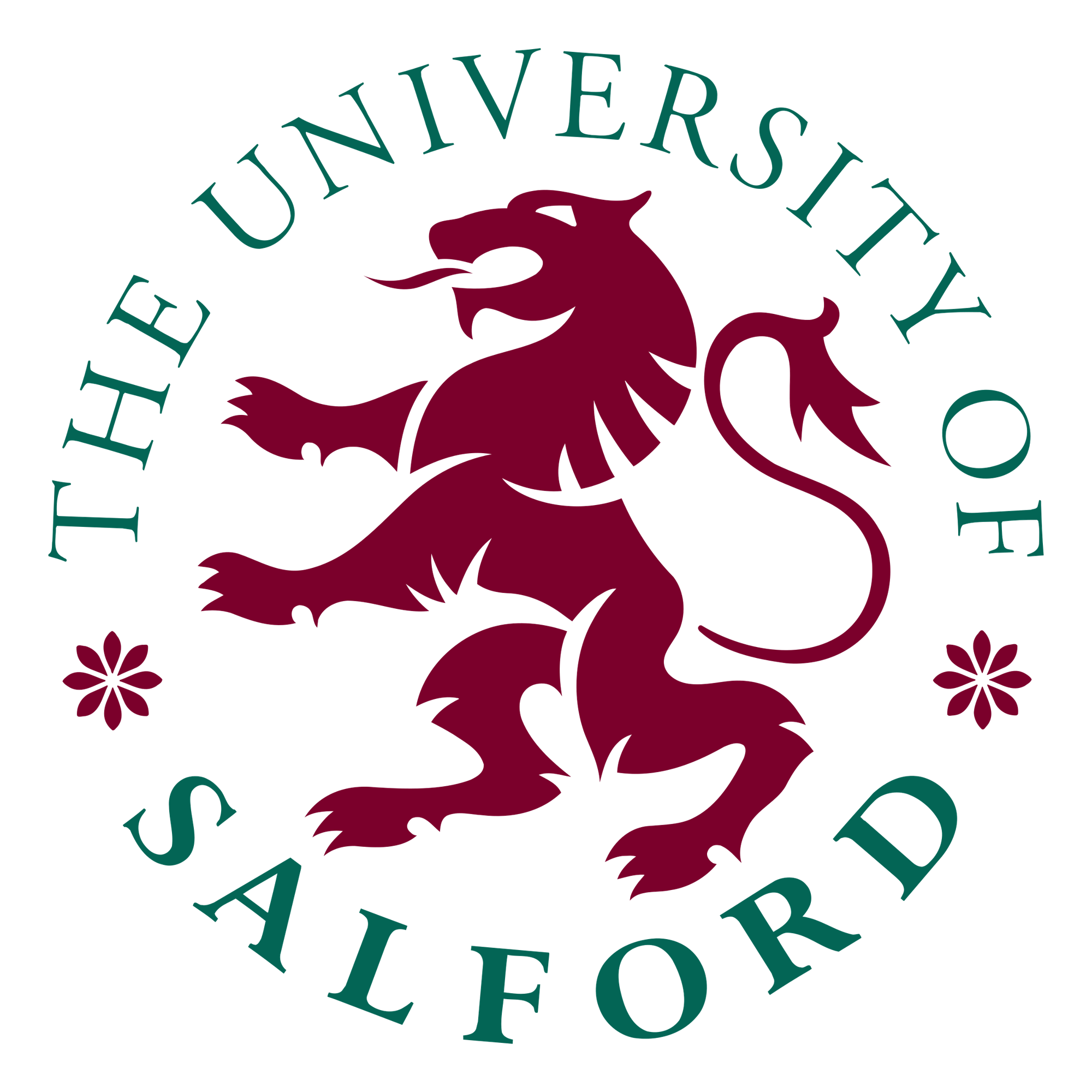The "Accidental Spaniard"
31Dec
By Paul Whitelock
Sunday, January 21, 2024
Pablo de Ronda is an "accidental Spaniard". He has lived and worked in the Serranía de Ronda for more than 15 years. Yet it was all an accident really. He explains.
Introduction to Spain
At school I was good at languages. I did German, French and Latin at GCE “O” Level (older readers will remember fondly those exams taken at age 16). My grades were pretty good (A, B, B respectively), so I did German and French at “A” Level, alongside Pure Mathematics and Art.
When the time came to apply for university, it seemed evident that I would study languages, so I applied for places on one of the new-fangled degree courses that had begun to appear, courses with more emphasis on communication and less focus, or none at all, on literature.

My first choices were the universities of Bradford and Salford, both former Royal Colleges of Advanced Technology, which were enjoying a growing reputation for the excellence of their modern languages courses in the late 60s.
When I was called for interview to the University of Salford, There were a rigorous series of tests and interviews which took up most of a day, the two professors who conducted the final interview, threw a curved ball at me.
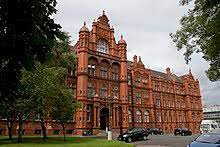
“Would you consider dropping either French or German and starting a new language ab initio?” asked Professor Sager. I’d done Latin “O” Level so I knew that ab initio meant “from scratch”.
“Wouldn’t that be a bit daft?” I replied. “I’ve already invested seven years in learning French and five in German.”
“We would make you a lower offer.”
I was beginning to feel the pressure a bit. The other unis on my list were somewhat more traditional with compulsory literature, which I wanted to avoid.
Enthusiastically I said: “Oh, really? Which languages are on offer from scratch then?”
“Italian, Russian or Spanish.”
“OK. Can I think about it for a couple of days and let you know?”
“I’m afraid not,” said the other interviewer, Professor Layton.
“You have to decide here and now or we shan’t make you an offer at all!”
Bloody hell! It’s like double-glazing salesmen. You know the drill: “This price is only available for the next five minutes. After that it’s back to full price.”
“Oh! Well, can I have a minute, please?”
I was completely on my own, about to make a decision that would have repercussions for my entire life. I went through each language in my head.
Italian first. Back then, aged 17, I had an irrational aversion to Italy, to Italians and to things Italian. So, Italian was out. Funnily enough I’ve never yet been to Italy, but I do like a lot of things Italian now. Sophia Loren and Gina Lollobrigida; Ferraris and Lamborghinis. I even had a Lambretta scooter for a while. The Italian Football team won the World Cup four times. Pasta and pizza are delicious.
Russian. I started a Russian “O” Level course as a subsidiary subject in the Lower Sixth but gave up after a few weeks because the teacher was hopeless. He told the class that he was only a page or so in front of us in the course book, as he sought to add a string to his teaching bow by learning Russian.
So, that left me with Spanish. To my eternal shame I knew absolutely zilch about the second most important language in the world after English. I knew the capital was Madrid and that they had lots of tacky holiday costas, but that was about it.
“I’ve come to a decision. Can I drop French and do Spanish instead?
“Yes, of course,” they piped up in unison.
“Instead of the normal two Bs and a C, you just need a B and 2 Cs. Congratulations! We look forward to seeing you in October."
It was 1968 and I’d just changed the course of my life – by accident!
Salford University
I achieved the required grades at A-Level, but after a difficult first year as an undergraduate, I dropped out of the course. I was way too immature.
So I went to work for a year, earning the princely sum of £10 a week in a small supermarket back in Exeter.
That was enough. I decided to return to uni. I didn’t have to repeat the first year, so joined a new cohort as the “older guy”. This new group of students made me very welcome.
At Easter 1970 we were sent to Spain for the first part of our year abroad. Seven of us flew to Barcelona, and then, because the trains were full (Easter), we all squeezed into a hire car (a BIG hire car) and travelled all the way across northern Spain to San Sebastián, where we were to attend university for three months.
I had to do all the driving, as I was the only one with a driving licence!
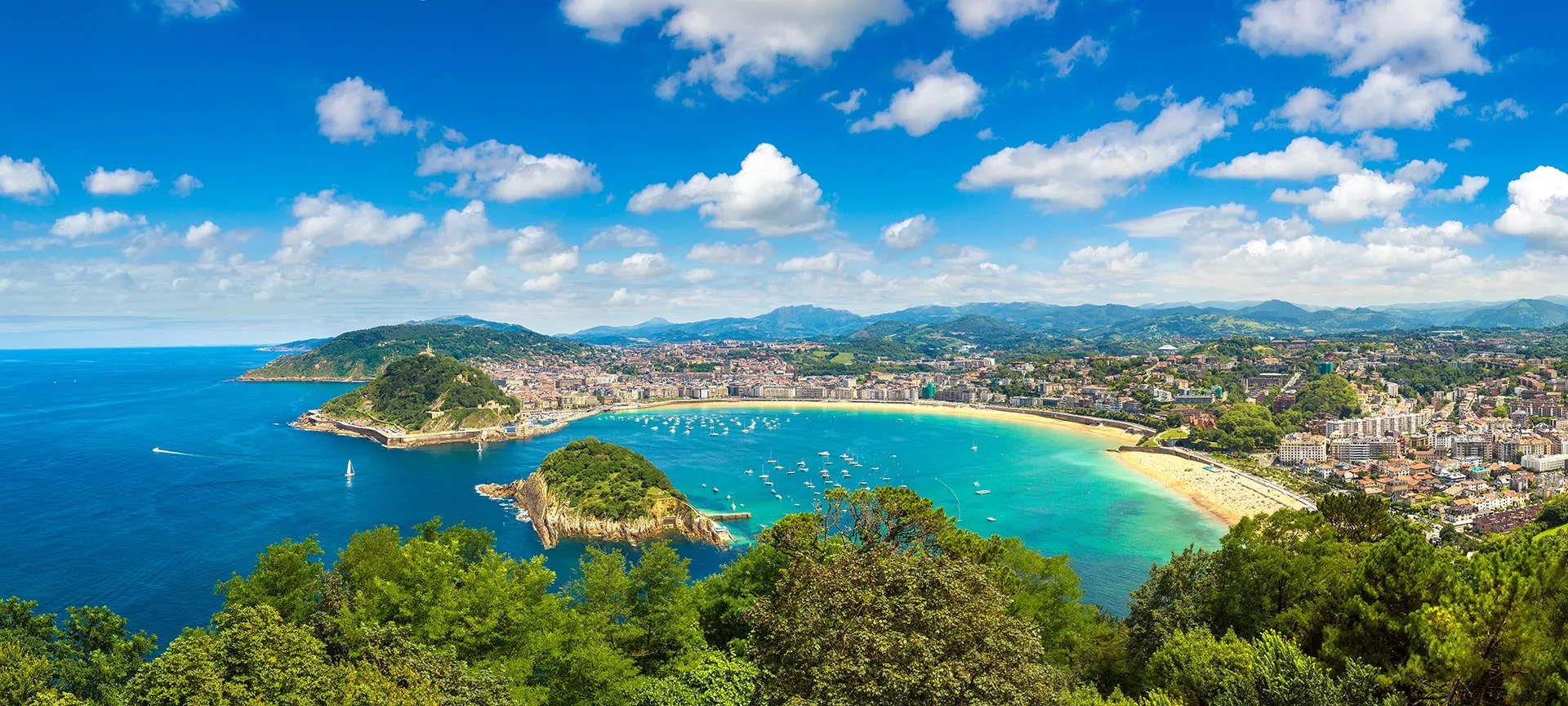
We arrived in the elegant Basque coastal resort at night and found that alcohol was very, very cheap, a mere one peseta (< 1p) for a glass of wine!
The worst hangover of my life later, I decided I really liked what I’d seen of Spain so far: seedy Barcelona, capital of Catalonia, and genteel Donostia (the politically correct Basque name for San Seb nowadays).
I was in love with Spain.
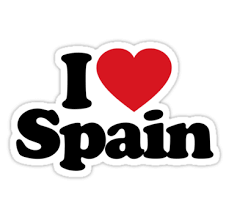
Three months later, university course in San Seb over, we were free to spend the next three months in Spain, doing whatever we wanted.
I’d landed myself a job in the office of a local Basque tour operator, Dorfe. The boss, Toni, was the Basque equivalent of a “wide boy”, but he ran a tight operation ferrying British and Irish Catholic pilgrims from Lourdes in France to San Sebastián, in order for them to let their hair down after all that praying and grotto-visiting at the French pilgrimage site.
After a few weeks in the office, Tony asked me if I’d like to have a go as a guide. I did and never looked back.
I became his top commission earner (for selling excursions) in no time at all.
Germany and Finals
Come the end of the summer it was time to head off to Germany for the second leg of my year abroad.
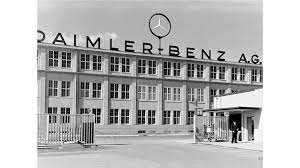
I had got a placement in Stuttgart, working as a translator at Daimler-Benz AG, the manufacturers of Mercedes-Benz vehicles.
After the rest of my six months at Daimler-Benz AG, I returned to Salford for the third term of my third year.
Out of the blue my Northern Irish pal Mel and I were offered the “job” of resident folk singers on Thursday nights at the Star Inn, Salford.
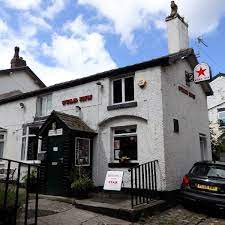
There was a bunch of first-year female modern languages students (groupies?) who used to come every Thursday, and one, a blonde, called Jeryl, caught my eye. It wasn’t long before we were “stepping out”.
Jeryl and I became an “item”. We stayed together through my final year, and her year abroad, spent in the Soviet Union and in southern France.
I graduated in 1973, did a Postgraduate Certificate in Education (PGCE) in Sheffield and became a modern languages teacher in Northwich, Cheshire.
By this time Jeryl and I were “living in sin” in a tower block in Salford Shopping Centre, while she finished off her degree.
But under pressure from parents to marry (living together out of wedlock was still a bit “iffy” in the early 1970s, we “jumped the broom” in January 1975.
Then we bought our first house in Walkden, Greater Manchester.
"Castles in Spain"
Fast forward to the year 2000, our Silver Wedding Anniversary.

In the intervening years I’d become Head of Spanish at a Boys’ Grammar School in Middleton, near Rochdale and then Head of Modern Languages and later Senior Teacher at a mixed comprehensive school in Newton-le-Willows, Merseyside.
Then I left the classroom and became a schools adviser for St Helens Council. Later I was a Senior General Adviser for Sefton Council for 10 years.
We had moved to Thelwall, near Warrington, Cheshire by this time. We stayed in that house, extending it twice, for 25 years, and had two kids, Amy and Tom.
We went to Spain on holiday or with work every year. Jeryl was also a real hispanophile by this time and had made the effort to do evening classes in Spanish. She soon became nearly as good as me at castellano!
In fact, our Spanish bank manager once said her accent was better than mine!
Silver Wedding
To celebrate 25 years of marriage, in August 2000 we arranged a little tour of Andalucía, staying in paradores for a week.
Two nights in Ronda, two in Arcos de la Frontera, one in Cádiz, one in Córdoba and one in Málaga Gibralfaro.
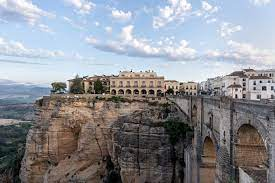
Ronda parador (photo: paradores)
We loved it, especially Ronda and the pueblos blancos of the Serranía de Ronda.
The following year we bought a little apartment in the Barrio San Francisco in Ronda. We named it Piso Blanco.
Two years later we also bought a little house to do up, Casa Blanca, also in the Barrio.
Annus horribilis
Then in 2005 I had my annus horribilis. A nervous breakdown, divorce and redundancy.
Two failed relationships later, I was at a loose end. I found myself in Ronda at the beginning of September 2008 for La Feria de Pedro Romero, the annual bullfighting festival.
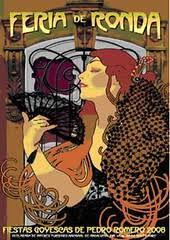
That was where I met the lovely Rita, whom I naturally nicknamed the Meter Maid. A German, at that time resident in Montejaque for two years, she didn’t have a clue what I was on about with her nickname, having more classical musical interests than the Beatles.
Anyway, we fell in love, I moved in with her at the end of 2008, we married in 2010 and the rest is history.
That is how this “accidental Spaniard”, who’d studied Spanish by chance, had ended up living in Spain with a German, using both languages every single day.
Not many languages graduates can make that claim! But it was not planned at all. It was all an accident!
Copyright: Paul Whitelock 2024
Note: This is an abridged version of a series of three articles written by the same author some years ago.
Tags: accidental Spaniard, Barcelona, Catalonia, Daimler-Benz, Donostia, Dorfe, Lourdes, Mercedes-Benz, Pablo de Ronda, Paul Whitelock, Ronda, San Sebastián, Serrania de Ronda, Stuttgart, Toni, Untertuerkheim
Comments
